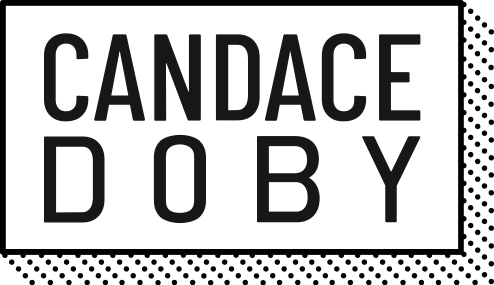In April, I had the pleasure of speaking to a group of Atlanta-based entrepreneurs who recently earned their Disadvantaged Business Enterprise (DBE) certification. This certification helps socially and economically disadvantaged entrepreneurs better position themselves to compete for federally funded projects.
I shared with this group three, critical mindsets, or mental habits, to remember as they continued to work on building and flexing their courage muscle along the path to building a flourishing business.
What I love about these mindsets is that they are universal and work just as great for college students, young professionals, and anyone else who is trying to get unstuck, push forward, and perform to their potential.
Mindset #1: Focus on winning instead of trying not to lose.
Think about the last time you wanted to speak up in a meeting of like minds with an unpopular opinion, compete for a new client or contract, or represent yourself authentically in a conventional space. It’s not difficult to conjure up the things you could lose as a result of your actions ending with a less-than-deal outcome. You could lose respect among team members, money, access to the inner circle, or a sense of belonging.
According to research, in what’s known as loss aversion, your brain places more emphasis on what you might lose than what you might gain when you’re faced with difficult decisions. This recognition of loss has tremendous potential to influence the way you approach your specific goals, so much so that you may hear yourself saying, “Just try not to lose.” And, with those five words, you (intentionally or unintentionally) prime yourself for protection, not growth.
When you engage with your goals from the vantage of trying not to lose, whether you are an entrepreneur, student or professional, you activate the energy of safety and protection around you. And, when you are in a protective state, you make it nearly impossible to prosper, and ultimately win. Biologist and author Bruce Lipton may have explained this best in his book The Biology of Belief. “Cells cannot exhibit both growth and protection configurations at the same time. In a response similar to that displayed by cells, humans unavoidably restrict their growth behaviors when they shift into a protective mode.”
Acting courageously has never been, and will never be, synonymous with safe. This means that those of us who want to express ourselves authentically and honestly, take a chance on ourselves, make a new pitch or take other worthwhile risks need to have a mindset that helps us focus on growing and winning instead of protecting ourselves from loss.
Mindset #2: Focus on comparing yourself to former versions of yourself.
Your mind has a well-established practice of gauging your position and progress in school, business, and life by comparing yourself to someone else. With the ubiquitous nature of social media, you likely find yourself comparing yourself to people don’t know and have never met. In fact, research says that “social comparison often happens spontaneously and automatically whenever we are confronted with others.” However, upward comparisons — the process of measuring yourself against other people who appear to be more successful than you — have the capacity to minimize your brilliance.
When you assess, usually with limited information, that someone is “better” than you and that those differences feel insurmountable, you can easily diminish your skills, strengths, confidence, and ambition. And, reducing the strength of your internal resources doesn’t create suitable conditions to courageously put your goals in motion. Your ability to conjure personal courage depends upon how solidly you can rely on your skills and confidence.
One mindset that entrepreneurs, students, and professionals should more regularly engage in to remind themselves of their growth and progress, is to compare themselves to former versions of themselves. Quite simply, there were points in your past when you were hoping to be where you are right now. And, that deserves your consideration and celebration much more than what someone else is doing.
Mindset #3: Stop following rules that don’t exist.
When you’re trying to leverage your confidence and courage to step outside your comfort zone in the direction of your goals, you likely have a set of fears orbiting around you trying their darnedest to get you to retreat. What can make your situation even more complicated is when you compound self-imposed restrictions on top of those fears that you, at some point, decided were worth following.
Have you hand-cuffed yourself with self-imposed pressure to be perfect? Have you buried yourself below trivial timelines for key moments of your life to unfold? Have you obligated yourself to living out other people’s values instead of your own?
The problem is … none of these rules really exist. They happen to be entirely made up restrictions you’ve placed on yourself that can complicate, even obstruct, the courage required to pursue your most meaningful goals.
This means that entrepreneurs, students, and professionals who have a worthy goal they want to pursue but find themselves stuck in a space of strain, should make a habit out of asking themselves “what rule am I following right now that doesn’t actually exist?”
The Takeaway
Courageously working toward your goal takes work, and often that work isn’t easy. You’ll have to face risks, navigate through the unknown, and be prepared to bounce back from unexpected setbacks. So, it’s important to have proper mindsets and mental habits to help you stay focused. Three mindsets for entrepreneurs, students, and professionals to remember are: 1) focus on winning instead of not losing 2) Focus on comparing yourself to former versions of yourself 3) stop following rules that don’t exist.







